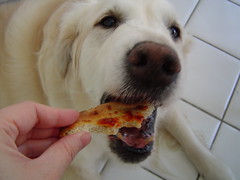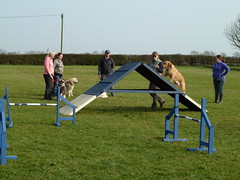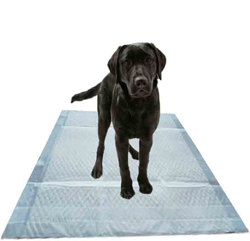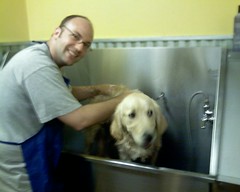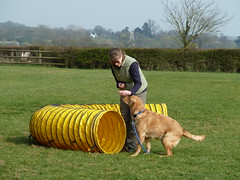A: This subject is controversial. There are those who feel that a raw diet is a natural one for dogs and will only feed raw, and there are those who disagree, including many veterinarians.
Recently, the American Veterinary Medical Association adopted a policy advising against feeding raw diets to dogs and cats.
They issued a statement which reads: “The AVMA discourages the feeding to cats and dogs of any animal-source protein that has not first been subjected to a process to eliminate pathogens because of the risk of illness to cats and dogs as well as humans.
Cooking or pasteurization through the application of heat until the protein reaches an internal temperature adequate to destroy pathogenic organisms has been the traditional method used to eliminate pathogens in animal-source protein, although the AVMA recognizes that newer technologies and other methods such as irradiation are constantly being developed and implemented.
Animal-source proteins of concern include beef, pork, poultry, fish, and other meat from domesticated or wild animals as well as milk* and eggs. Several studies reported in peer-reviewed scientific journals have demonstrated that raw or undercooked animal-source protein may be contaminated with a variety of pathogenic organisms, including Salmonella spp, Campylobacter spp, Clostridium spp, Escherichia coli, Listeria monocytogenes, and enterotoxigenic Staphylococcus aureus. Cats and dogs may develop foodborne illness after being fed animal-source protein contaminated with these organisms if adequate steps are not taken to eliminate pathogens; secondary transmission of these pathogens to humans (e.g., pet owners) has also been reported.
Cats and dogs can develop subclinical infections with these organisms but still pose a risk to livestock, other nonhuman animals, and humans, especially children, older persons, and immunocompromised individuals.
To mitigate public health risks associated with feeding inadequately treated animal-source protein to cats and dogs, the AVMA recommends the following: Avoid feeding inadequately treated animal-source protein to cats, and dogs restrict cats’ and dogs’ access to carrion and animal carcasses (e.g., while hunting) Provide fresh, clean, nutritionally balanced and complete commercially prepared or home-cooked food to cats and dogs, and dispose of uneaten food at least daily practice personal hygiene (e.g., handwashing) before and after feeding cats and dogs, providing treats, cleaning pet dishes, and disposing of uneaten food * The recommendation not to feed unpasteurised milk to animals does not preclude the feeding of unpasteurised same-species milk to unweaned juvenile animals.”
While we personally have not heard of dogs or cats becoming ill from eating raw meat, there most certainly will be some. Just as there are dogs and cats who become ill from canned food that is tainted or spoiled.
Ultimately, it is up to you to decide which diet you choose for your pets… and often, your pet will have a lot to say about it too!
